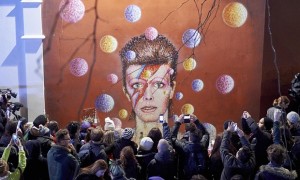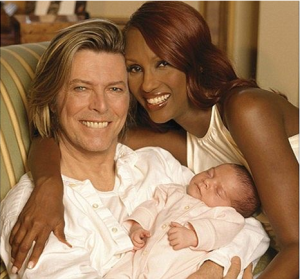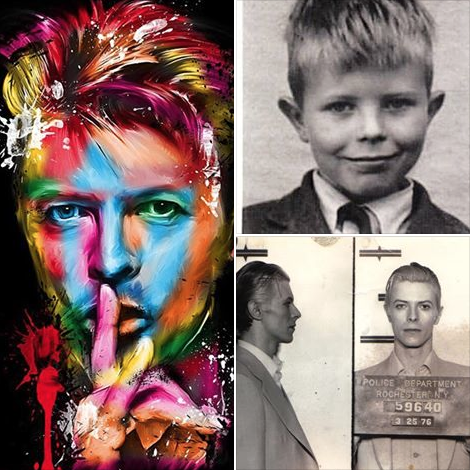I’ve been a big David Bowie fan since high school (in the late 1970s). My classmates thought I was a weirdo. They preferred acts like Aerosmith and the Rolling Stones. But I took perverse pride and pleasure in having them gossip about my sexuality because I preferred him.
For what it’s worth, my favorite songs back then were “Space Oddity” 1969, “Changes” 1971, “Fame” 1975, “Golden Years” 1976, and “Heroes” 1977. I’m not sure what to make of the fact that they remained my favorites throughout his career.
Incidentally, his onstage makeup and costumes grabbed most attention. But anyone who bothered to listen knows that Bowie was always a master lyricist and composer.
It just so happens I stood out as much among my classmates as Bowie did among his fellow artists. I was the only Black kid in my school, until administration officials recruited a Black girl. Whether they were benign racists seeking gender parity, or homophobes guiding my sexual orientation, is debatable. But I digress.
The point is that even I was as shocked by the outpouring of tributes as I was by the news of his death yesterday. With all due respect to Michael Jackson, we have not seen anything like this since the news of Princess Diana’s death shocked the world in August 1997. Even the Vatican paid tribute to Bowie for Christ’s sake!
Except, of course, that there’s this:
I fear the expression of such sentiments [like condolences] these days is intended more to draw attention to the person tweeting them than to comfort the person (who should be) receiving them.
(“Hey Stupid, Personal Tweet Is an Oxymoron,” The iPINIONS Journal, March 6, 2015)
Case in point, Bowie’s grieving widow is the former Black supermodel, Iman Abdulmajid. But I’d bet good money that the vast majority of his self-professed friends never even attempted to comfort her personally. They were too busy rushing to tweet their “heartfelt” condolences for the world to see.
To be fair, Bowie kept even close friends at arms length. Only this explains why they were as shocked by the news of his death as we were. Brian Eno, his friend and collaborator of 40 years, admitted as much in a statement to BBC News. He had no idea Bowie had been battling cancer for the past 18 months….
 But don’t get me started on his self-professed fans taking to social media to share how much his music meant to them. After all, if just a fraction of them had actually purchased his music, Bowie’s last hit single would not have been “Let’s Dance” … over 30 years ago. Mind you, he probably couldn’t have cared any less.
But don’t get me started on his self-professed fans taking to social media to share how much his music meant to them. After all, if just a fraction of them had actually purchased his music, Bowie’s last hit single would not have been “Let’s Dance” … over 30 years ago. Mind you, he probably couldn’t have cared any less.
Ironically, apropos of hits, that is bound to change with the timely release, just two days before he died, of Blackstar, his requiem/farewell album. It’s trending; therefore, millions of social-media twits must have it.
In any event, what I admired about Bowie in his younger years, I admired about him in his golden years. Namely, his self-possessed approach to music that defied convention and trends in equal measure.
He was never more defiant, in his inimitably cool way, than when he called out MTV for featuring only White artists like him. Black artists like Rick James had been publicly accusing MTV of rank discrimination since its debut in 1981. But it took Bowie’s public shaming for the network to finally feature them, beginning with Michael Jackson’s pioneering “Billie Jean” in 1983.
Bowie spent much of the past 30 years reportedly making music for himself. In doing so, he shunned the rock-star lifestyle zealously. Indeed, he seemed to take perverse pride and pleasure in having people think of him as a stepford husband.
 Iman provided this little insight about the man (and their nearly 24-year marriage) recently:
Iman provided this little insight about the man (and their nearly 24-year marriage) recently:
David is even more of a homebody than I am… I also think that there is nothing that he hasn’t seen….
(London Guardian, June 28, 2014)
Perhaps even more insightful though are reports that, unlike Mick Jagger, Paul McCartney, and other rock stars, Bowie declined to be knighted by the Queen. He explained that he did not need a “fancy title” to validate his life’s work.
I intimated above that he and I had a little in common. Well, as proud commoners, we shared a mutual disdain for the presumptions, perquisites, and pretensions of royalty. My disdain is redolent in many commentaries, including “Pardon Me, Sir, but How Much Did You Pay for Your Knighthood,” July 14, 2006, “The Problem Is Not Kate’s Weight. It’s William’s Title,” February 16, 2011, and “Australia Bans British Honours. Other Commonwealth Countries Should Too,” November 3, 2015.
Bowie was clearly hard to impress. Which is why, far from flattering him, attention-seeking performers like Kanye, Madonna, and Gene Simmons could only be flattering themselves with their fawning tributes.
Still, I would be remiss not to acknowledge one viral sensation, which I gather tickled Bowie’s fancy as much as it did mine. It happened in May 2013, when Canadian astronaut Chris Hadfield dropped his cover of “Space Oddity.” That Hadfield performed it from the International Space Station was special enough. That he channeled Bowie’s voice so uncannily was, well, otherworldly.
“Ashes to ashes. Dust to stardust.” Indeed.
Bowie died at his home in New York City on Sunday. He was 69.
Farewell, David.
Related commentaries:
Personal tweet…
Your Knighthood…
Ban British honours

